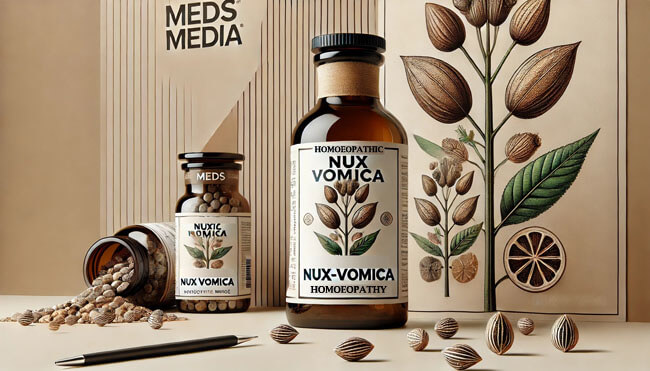Introduction
Psora is a fundamental concept in homeopathy, often referred to as the “mother of all diseases.” It is one of the three primary miasms, or chronic disease predispositions, that form the basis of homeopathic treatment. Understanding Psora is essential for grasping the deeper aspects of homeopathic practice, as it influences a wide range of physical, mental, and emotional symptoms. This guide provides a comprehensive overview of Psora, including its origin, characteristics, symptoms, and the homeopathic medicines used to address it.
Origin of Psora
Psora is considered the oldest and most significant of the three chronic miasms in homeopathy. Often described as the foundation of all chronic diseases, Psora is believed to originate from the suppression of skin conditions like scabies. According to Dr. Samuel Hahnemann, the founder of homeopathy, Psora is the root cause of many chronic ailments that affect humanity. It represents a state of deficiency and imbalance in the body, leading to various health issues that can persist throughout a person’s life if not properly addressed.
Characteristics of Psora
Psora is associated with conditions that involve deficiency, hypersensitivity, and functional disturbances. Unlike the other miasms, Psora typically does not lead to significant structural changes in the body. Instead, it manifests in a variety of ways, ranging from skin problems to digestive issues. Psoric conditions often involve itching, dryness, and recurring infections. The symptoms are usually aggravated by stress, anxiety, and environmental factors like cold weather.
Key Characteristics of Psora:
- Deficiency: Psora is linked to a lack of vital energy, leading to weakness and susceptibility to illness.
- Hypersensitivity: Individuals with a psoric constitution may be overly sensitive to their environment, including weather changes, allergens, and stress.
- Functional Disturbances: Psora affects the body’s function without causing major structural changes. Examples include digestive issues, skin problems, and general fatigue.
Psora Miasm Chart
| Aspect | Details |
|---|---|
| Definition | The foundational miasm in homeopathy, representing chronic conditions linked to deficiency, hypersensitivity, and functional disturbances. |
| Origin | Derived from suppressed skin conditions, commonly linked to scabies. |
| Emotional/Mental | Anxiety, fear of poverty, insecurity, pessimism, irritability, restlessness, low self-confidence, excessive worry, and exaggerated sensitivity to criticism. |
| Physical Symptoms | Itching, dryness, skin eruptions, excessive sweating, constipation, hunger pangs, coldness, fatigue, debility, and functional disorders (without tissue changes). |
| Common Diseases | Eczema, psoriasis, allergies, asthma, hemorrhoids, indigestion, migraine, anemia, hypothyroidism, and varicose veins. |
| Triggers | Stress, cold weather, poor diet, overwork, mental strain, and lack of sleep. |
| Remedies | Sulphur, Calcarea Carbonica, Psorinum, Lycopodium, Natrum Muriaticum, Arsenicum Album, and Sepia. |
| Keynotes | Chronic conditions, heightened sensitivity, skin-related issues, mental distress, and functional disorders. |
Mental and Emotional Symptoms of Psora
Psora not only affects the body but also has a profound impact on the mind and emotions. People with psoric tendencies often experience chronic anxiety, worry, and fear. These mental symptoms are usually related to feelings of inadequacy, fear of poverty, or concerns about health and safety. Emotional sensitivity is another hallmark of Psora, with individuals reacting strongly to stress or emotional challenges.
Common Mental and Emotional Symptoms:
- Anxiety: A constant state of worry and unease, often without a specific cause.
- Fear of Poverty: An irrational fear of financial loss or insecurity.
- Emotional Sensitivity: Heightened reactions to stress, criticism, or emotional situations.
Physical Symptoms of Psora
The physical manifestations of Psora are diverse and can affect various systems of the body. Skin problems are among the most common symptoms, often characterized by dryness, itching, and recurring eruptions. Psoric individuals may also suffer from digestive disturbances, chronic fatigue, and other functional issues. These symptoms are typically chronic and may worsen under stress or during changes in weather.
Common Physical Symptoms:
- Dry Skin and Itching: Persistent dryness, flaking, and itching are typical signs of a psoric condition.
- Digestive Issues: Problems such as indigestion, bloating, and constipation are common in psoric individuals.
- Chronic Fatigue: A pervasive sense of tiredness and lack of energy, often worsened by mental or physical exertion.
List of Psora Medicines
Homeopathic treatment of Psora involves a range of remedies that address the underlying miasmatic influence. These remedies are selected based on the individual’s specific symptoms, constitution, and overall health. Some of the most commonly used Psora medicines include:
- Sulphur: Known as the king of anti-psoric remedies, Sulphur is used for a wide range of skin conditions, digestive problems, and general weakness. It is particularly effective for itching, burning, and skin eruptions that worsen with heat.
- Calcarea Carbonica: This remedy is indicated for individuals who are easily fatigued, have poor digestion, and are prone to anxiety and fear. It is also used for skin conditions and chronic infections.
- Graphites: Effective for dry, rough skin with cracks and fissures, especially in individuals who are overweight, sluggish, and prone to digestive issues.
- Lycopodium: Often used for digestive problems, bloating, and chronic constipation. It is also helpful for individuals with low self-confidence and anxiety.
- Sepia: Useful for women with hormonal imbalances, chronic fatigue, and depressive moods. It also addresses skin issues and digestive disturbances.
- Natrum Muriaticum: Indicated for individuals who are emotionally sensitive, prone to headaches, and have a tendency toward dry skin and hair.
- Psorinum: Often prescribed for chronic, recurring infections, skin conditions with severe itching, and conditions that worsen in cold weather.
- Arsenicum Album: Used for anxiety, restlessness, skin conditions like eczema, and chronic fatigue. It is also effective for digestive issues and burning sensations.
- Silicea: Indicated for chronic infections, poor stamina, skin abscesses, and conditions involving the suppression of sweat.
- Pulsatilla Nigricans: Suitable for individuals with mood swings, mild temperament, digestive issues, and conditions that change frequently.
- Ignatia Amara: Often prescribed for emotional distress, grief, nervousness, and conditions that are aggravated by strong emotions.
- Phosphorus: Effective for individuals who are sensitive, anxious, and prone to bleeding disorders, respiratory issues, and skin problems.
- Rhus Toxicodendron: Used for skin conditions, joint pain, and stiffness that worsen with rest and improve with movement.
- Nux Vomica: Indicated for digestive disturbances, irritability, sensitivity to cold, and conditions aggravated by stress or overeating.
- Carbo Vegetabilis: Suitable for individuals with poor circulation, bloating, and digestive issues. It is also used for skin conditions and general weakness.
- Sulphur Iodatum: A combination remedy used for skin conditions, respiratory issues, and chronic infections.
- Causticum: Effective for skin conditions, urinary issues, and conditions worsened by cold weather or stress.
- Alumina: Indicated for chronic dryness, constipation, and skin conditions, particularly in elderly individuals.
- Hepar Sulphuris Calcareum: Used for abscesses, boils, skin infections, and conditions that are sensitive to touch and cold.
- Kali Carbonicum: Suitable for individuals with back pain, respiratory issues, and conditions aggravated by cold weather.
- Mercurius Solubilis: Indicated for skin conditions, excessive sweating, and chronic infections with offensive discharges.
- Sulphuricum Acidum: Used for skin ulcers, bruising, and conditions that involve burning pains and general weakness.
- Thuja Occidentalis: Commonly used for warts, skin overgrowths, and conditions worsened by damp weather.
- Antimonium Crudum: Effective for digestive disturbances, thickened skin, and conditions aggravated by overeating or cold weather.
- China Officinalis: Used for conditions of weakness, anemia, digestive issues, and skin conditions like ulcers.
How Psora Works in Homeopathy
In homeopathy, Psora represents a predisposition that influences how an individual reacts to stress, infections, and environmental factors. When a person has a dominant psoric miasm, they may develop chronic conditions that are difficult to cure without addressing the underlying Psora. Homeopathic treatment aims to stimulate the body’s vital force to overcome the psoric influence, restoring balance and improving overall health.
Related links for Further Exploration:
Syphilis in Homeopathy
Sycosis in Homeopathy
Anti-Psoric in Homeopathy
Why Meds Media guides are different
We focus on clear, practical explanations of homeopathic and natural health topics so you can understand remedies, symptoms, and lifestyle changes in simple language.
Meds Media is an educational resource only. Always consult a qualified doctor or homeopathic practitioner before starting, stopping, or changing any treatment.
Similar Posts You may also like

LM Potencies in Homeopathy Explained | Insights from the 6th Edition of the Organon

Homeopathy Medicines for Pregnancy Care

Homeopathic Remedies Derived from the Fungi Kingdom

Homeopathic Remedies Derived from the Bacteria Kingdom
Source of Homoeopathic Medicine
What Are Common Symptoms of Autoimmune Disease?
Exploring Homeopathy as a Complementary Treatment for Cocaine Addiction
Homeopathy: More Than a Placebo – A Scientific Perspective
Twelve Tissue Remedies in Homeopathy: A Comprehensive Guide
Polycystic Ovary Syndrome (PCOS) Treatment in Homeopathy
Natrum Muriaticum Homeopathic Medicine & Personality | Uses, Benefits & Indications
Understanding Suicidal Conditions and Homeopathic Remedies

